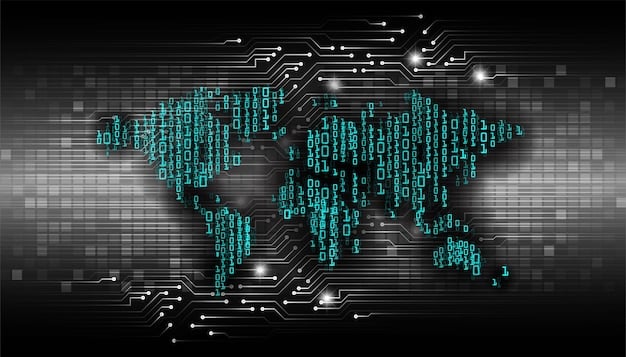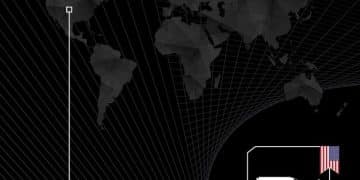US Sanctions: 2025 Restrictions & Global Market Impact

US Sanctions: What are the New Restrictions and How Will They Affect Global Markets in 2025? This analysis explores potential changes in U.S. sanctions policy and their anticipated consequences on international economies.
The landscape of international relations is constantly shifting, and with it, the role of economic sanctions as a tool of foreign policy. Understanding US Sanctions: What are the New Restrictions and How Will They Affect Global Markets in 2025? is crucial for businesses, policymakers, and anyone with a stake in the global economy. What changes can we anticipate in the coming year, and what impacts will they have?
This article will delve into the potential transformations in U.S. sanctions policies, analyzing their possible effects on global markets. Let’s explore what the future might hold for international trade and economic stability.
Understanding the Evolving Landscape of US Sanctions
US sanctions are a significant tool in international relations, used to influence the behavior of nations and entities. As we look towards 2025, it’s important to understand how these sanctions might evolve and what new restrictions could be implemented.

Historical Context and Current Trends
To anticipate future changes, we must first understand the history of U.S. sanctions and their current trends. Sanctions have been used for various reasons, including national security, human rights, and counter-terrorism. Over the years, the scope and targets of these sanctions have evolved in response to global events and changing geopolitical priorities.
Currently, many U.S. sanctions are focused on countries like Russia, Iran, and North Korea, as well as entities and individuals involved in activities that threaten U.S. interests. The effectiveness of these sanctions is constantly debated, but their impact on global markets is undeniable.
- Sanctions often target specific sectors, such as energy, finance, and defense.
- They can also be comprehensive, restricting nearly all economic activity with a targeted country.
- The use of secondary sanctions, which penalize entities that do business with sanctioned countries, has also become more prevalent.
Looking ahead, several factors could influence the future of U.S. sanctions. These include shifts in U.S. foreign policy, changes in the global balance of power, and the emergence of new threats and challenges.
In conclusion, staying informed about the historical context and current trends in US sanctions is essential for understanding their potential future impact. By analyzing these factors, we can better prepare for the changes that may come in 2025.
Potential New Restrictions in 2025
As we approach 2025, there are several areas where US Sanctions: What are the New Restrictions and How Will They Affect Global Markets in 2025? could see significant changes. These potential new restrictions could have far-reaching implications for businesses and economies worldwide.
Focus on Technology and Cybersecurity
One area where we might see increased sanctions is in the technology sector, particularly regarding cybersecurity. As cyber threats become more sophisticated and pervasive, the U.S. may use sanctions to target individuals, entities, and even countries involved in malicious cyber activities.
These sanctions could include restrictions on the export of certain technologies, as well as measures to prevent companies from doing business with entities that pose a cybersecurity risk. The goal would be to deter cyberattacks and protect critical infrastructure.
- Sanctions could target state-sponsored hackers and cybercriminals.
- They might also focus on companies that provide technology or services used in cyberattacks.
- The impact on global technology supply chains could be significant.

Expansion of Human Rights Sanctions
Another area where we could see an expansion of sanctions is in the realm of human rights. The U.S. has increasingly used sanctions to target individuals and entities responsible for human rights abuses, and this trend is likely to continue.
These sanctions could target government officials, security forces, and others involved in suppressing dissent or violating human rights. They could also be used to address issues such as corruption, money laundering, and illicit financial flows.
The potential for new restrictions in 2025 suggests that businesses and governments need to be prepared for a changing landscape of economic sanctions. By understanding these potential changes, they can better navigate the complexities of international trade and investment.
How US Sanctions: What are the New Restrictions and How Will They Affect Global Markets in 2025?
The effects of US Sanctions: What are the New Restrictions and How Will They Affect Global Markets in 2025? can be widespread and complex. Understanding these potential impacts is crucial for businesses and policymakers alike.
Impact on Specific Industries
Certain industries are more vulnerable to the effects of U.S. sanctions than others. The energy sector, for example, has often been a target of sanctions, particularly in countries like Iran and Russia. Sanctions can restrict the export of oil and gas, limit access to financing, and disrupt supply chains.
The financial sector is also highly susceptible to the effects of sanctions. Restrictions on financial transactions can make it difficult for companies to do business with sanctioned countries or entities. Sanctions can also lead to increased compliance costs and reputational risks for financial institutions.
The technology sector is increasingly in the crosshairs of sanctions, as governments seek to control the flow of sensitive technologies and prevent their use for malicious purposes.
These direct impacts can have knock-on effects on other industries and economies, leading to broader disruptions and uncertainties.
Geopolitical Implications
US sanctions can also have significant geopolitical implications. They can alter the balance of power, influence the behavior of nations, and shape international relations. Sanctions can be a tool of diplomacy, used to pressure countries to change their policies or behavior.
- Sanctions can strain relations between countries, leading to increased tensions and mistrust.
- They can also create opportunities for other countries to step in and fill the void left by sanctioned entities.
- The effectiveness of sanctions as a tool of foreign policy is often debated.
In conclusion, the consequences of US sanctions extend beyond economics, influencing the global order and the dynamics between nations.
Navigating the Complexities of Sanctions Compliance
Complying with U.S. sanctions can be a complex and challenging task. Businesses must navigate a maze of regulations, guidelines, and interpretations to ensure they are not violating any restrictions. A proactive approach to sanctions compliance is essential for avoiding penalties and maintaining a positive reputation.
Due Diligence and Risk Assessment
One of the most important steps in sanctions compliance is conducting thorough due diligence. This involves screening customers, suppliers, and other business partners to ensure they are not on any sanctions lists or otherwise subject to restrictions.
Companies should also conduct a risk assessment to identify potential vulnerabilities and develop appropriate compliance measures. This assessment should consider the company’s geographic footprint, industry sector, and business activities.
Sanctions compliance requires a comprehensive and ongoing effort. By taking these steps, businesses can minimize their risk of violating sanctions and ensure they are operating within the bounds of the law.
Seeking Expert Guidance
Given the complexities of sanctions compliance, it can be beneficial to seek expert guidance. Attorneys, consultants, and other specialists can provide valuable insights and support to help companies navigate the regulatory landscape.
- Expert advice can help companies understand their specific obligations under U.S. sanctions laws.
- It can also help them develop and implement effective compliance programs.
- Engaging with experts can provide assurance that the company is taking all necessary steps to avoid violations.
Staying informed and seeking expert guidance are essential for navigating the complexities of sanctions compliance. By doing so, businesses can protect themselves from legal and reputational risks and ensure they are operating responsibly in the global marketplace.
Strategies for Businesses to Adapt to US Sanctions in 2025
Given the potential for new and evolving US Sanctions: What are the New Restrictions and How Will They Affect Global Markets in 2025?, businesses need to develop strategies to adapt and mitigate the risks. Proactive planning and diversification can help companies navigate the changing landscape of international trade.
Diversifying Markets and Supply Chains
One effective strategy is to diversify markets and supply chains. By reducing reliance on specific countries or regions, businesses can minimize their exposure to sanctions risks. This may involve expanding into new markets, sourcing materials from different suppliers, and diversifying production facilities.
Diversification can also make businesses more resilient to other types of disruptions, such as natural disasters, political instability, and trade wars. By spreading their operations across multiple locations, companies can reduce their vulnerability to any single event.
Embracing Technological Solutions
Another strategy is to embrace technological solutions that can enhance sanctions compliance. This may involve using software tools to automate screening processes, monitor transactions, and identify potential risks. Technology can also help companies stay informed about changes in sanctions regulations and interpret their obligations.
- AI-powered tools can analyze vast amounts of data to detect suspicious activity.
- Blockchain technology can provide greater transparency and traceability in supply chains.
- Cloud-based platforms can facilitate collaboration and information sharing across different locations.
These proactive measures can help businesses maintain their competitiveness and thrive in a dynamic global economy.
| Key Area | Brief Description |
|---|---|
| 🛡️ Sanctions Expansion | Potential increase in tech & human rights sanctions. |
| 🌐 Market Impact | Affects energy, finance, and technology sectors globally. |
| ✅ Compliance | Requires due diligence, risk assessment & expert guidance. |
| 🚀 Adaptation | Diversify markets, embrace tech, proactively plan. |
Frequently Asked Questions
Secondary sanctions target entities that do business with sanctioned countries, even if those entities are not based in the US. They may play a significant role in the US future strategy.
The energy, finance, and technology sectors are typically the most affected, as they are often central to a country’s economic activity and strategic capabilities.
Businesses should screen customers and suppliers against sanctions lists, assess their exposure, get expert guidance, and monitor transactions for compliance continuously.
Shifting U.S. foreign policy, changes in the global balance of power, and the emergence of new global threats all play a role in shaping US sanctions decisions.
Diversifying supply chains can reduce a company’s vulnerability to sanctions and create resilience against disruptions, as well as allow for quicker adaptation to market shifts.
Conclusion
In conclusion, understanding US Sanctions: What are the New Restrictions and How Will They Affect Global Markets in 2025? is vital for navigating the complexities of global affairs and economics. Staying informed, conducting due diligence, and adapting strategies are essential steps for businesses and policymakers alike.
As the world continues to evolve, so too will the landscape of sanctions. By preparing for these changes, stakeholders can minimize risks, capitalize on opportunities, and contribute to a more stable and prosperous global community.





